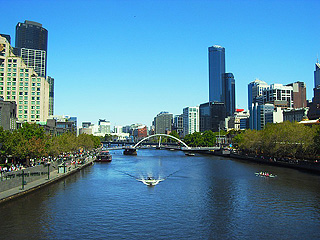Slovenian Payslip Translation
 We provide payslip translations in many languages, including Slovenian. Besides letters of appointment or employment contracts, it is a very common document used to verify your past working experience or income.
We provide payslip translations in many languages, including Slovenian. Besides letters of appointment or employment contracts, it is a very common document used to verify your past working experience or income.
Our Slovenian NAATI translators provide both Slovenian to English translation and English to Slovenian translation services for documents.
Translate My Payslip
- Can be done within two days or faster
- Express options available
- No office visit required
- Best price guarantee
- NAATI translator stamped
- Mailed to your address
- Just submit your payslips using the form on this page for a free quote
- There are no hidden charges for fast Slovenian translation by NAATI certified Slovenian translators
- Many happy repeat customers
- We provide discounts for repeat customers or large orders
- NAATI certified Slovenian translators for immigration or legal documents
- Full-time Slovenian translators experienced in translating all kinds of documents
- Personal, friendly service
Slovenian Translation Service Australia-Wide
- Sydney
- Melbourne
- Brisbane
- Perth
- Canberra
- Darwin
- Hobart
- Adelaide
- Wollongong
- Newcastle
- Cairns
- ID card translations
- Degree translations
- Diploma translations
- Passport translation
- Family register/book translations
- Employment reference translations
- Police Clearance Certificate Translation
- Change of name certificate translations
- Vaccination certificate translations
- Education certificate translations
- Employment reference translations
- Birth certificate translation
- Tertiary certificate translations
- Identity certificate translations
- Divorce certificate translations
- Baptism certificate translations
- Custody document translations
- Academic transcript translations
- Legal translation services
- Death certificate translation
- Degree certificate translations
- Marriage certificate translations
- Medical certificate/report translations
- Letters of appointment translations
- Employment contract translations
- Academic transcript translations
- Professional certificate translations
- Trade certificate translations
- Driving licence translation
- Motor cycle licence translations
- Primary school certificate translations
- Secondary certificate translations
- Vocational certificate translations
More About The Slovenian Language
Standard Slovene is the national standard language that evolved on the basis of Central Slovene dialects in the 18th century and consolidated itself through the 19th and 20th centuries. Slovene, like most other European languages, has a T-V distinction, or two forms of 'you' for formal and informal situations. Although informal address using the 2nd person singular ti form (known as tikanje) is officially limited to friends and family, talk among children, and addressing animals, it is increasingly used among the middle generation to signal a relaxed attitude or lifestyle instead of its polite or formal counterpart using the 2nd person plural vi form (known as vikanje).
- Vi ga niste videli. ('You did not see him': both the auxiliary verb niste and the participle videli are plural masculine. Standard usage.)
- Vi ga niste videl/videla. ('You did not see him': the auxiliary verb niste is plural but the participle videl/videla is singular masculine/feminine. Nonstandard usage.)
The use of nonstandard forms (polvikanje) might be frowned upon by many people and should never be used in a formal setting.
The use of the 3rd person plural oni ('they') form (known as onikanje in both direct address and indirect reference) as an ultra-polite form is now archaic or dialectal; it is associated with servant-master relationships in older literature, the child-parent relationship in certain conservative rural communities, and parishioner-priest relationships.

Melbourne is the capital and most populous city in the state of Victoria, and the second most populous city in Australia. The Melbourne City Centre is the hub of the greater metropolitan area and the Census statistical division—of which "Melbourne" is the common name. As of June 2010, the greater geographical area had an approximate population of four million. Inhabitants of Melbourne are called Melburnians or Melbournians.
The metropolis is located on the large natural bay known as Port Phillip, with the city centre positioned at the estuary of the Yarra River (at the northernmost point of the bay). The metropolitan area then extends south from the city centre, along the eastern and western shorelines of Port Phillip, and expands into the hinterland. The city centre is situated in the municipality known as the City of Melbourne, and the metropolitan area consists of a further 30 municipalities.
